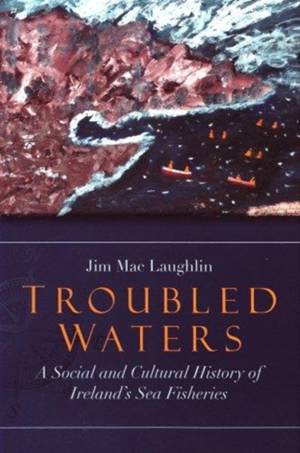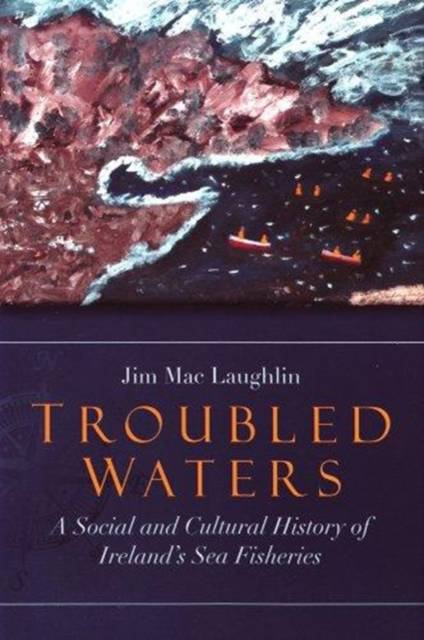
En raison d'une grêve chez bpost, votre commande pourrait être retardée. Vous avez besoin d’un livre rapidement ? Nos magasins vous accueillent à bras ouverts !
- Retrait gratuit dans votre magasin Club
- 7.000.000 titres dans notre catalogue
- Payer en toute sécurité
- Toujours un magasin près de chez vous
En raison de la grêve chez bpost, votre commande pourrait être retardée. Vous avez besoin d’un livre rapidement ? Nos magasins vous accueillent à bras ouverts !
- Retrait gratuit dans votre magasin Club
- 7.000.0000 titres dans notre catalogue
- Payer en toute sécurité
- Toujours un magasin près de chez vous
Troubled Waters
A Social and Cultural History of Ireland's Sea Fisheries
Jim Mac Laughlin
Livre relié | Anglais
62,95 €
+ 125 points
Description
The marginalization of the Irish fishing industry in modern Ireland is matched only by centuries of neglect of Ireland's sea fisheries by historians and social commentators alike. The rise of rural fundamentalism in the aftermath of the Great Famine further exacerbated the neglect of the maritime in Irish history. In refusing to treat inshore and deep-sea fishing as mere footnotes in the evolution of Irish society, this work stresses the historical importance of the coastal economy to the country's maritime communities. Topics examined in this comprehensive history of maritime Ireland include: the archaeology of Irish fishing * fishing and fishing communities in Gaelic Ireland * the internationalization of Irish waters in the 15th and 16th centuries * mare clausum and the restructuring of sea fisheries in colonial Ireland * fish shambles and fish markets in coastal Ireland * fish and marine produce in Irish food history * the social world and working lives of Irish fishing communities * representations of coastal workers in Irish art and literature * the 'crowded shoreline' of 19th-century Ireland * the contribution of marine resources to the evolution of farmer/fisher communities in the post-Famine period. "Troubled Waters has instantly become the standard text on the history of Ireland's sea fisheries. It has not merely done this by virtue of being the first scholarly monograph on the topic, but, moreover, because it is such an authoritative piece of work; considered, comprehensive and deeply analytical." Irish Literary Supplement, Fall 2012, Vol. 32, No. 1
Spécifications
Parties prenantes
- Auteur(s) :
- Editeur:
Contenu
- Nombre de pages :
- 413
- Langue:
- Anglais
Caractéristiques
- EAN:
- 9781846822582
- Date de parution :
- 31-08-10
- Format:
- Livre relié
- Format numérique:
- Genaaid
- Dimensions :
- 159 mm x 235 mm
- Poids :
- 1038 g

Les avis
Nous publions uniquement les avis qui respectent les conditions requises. Consultez nos conditions pour les avis.






